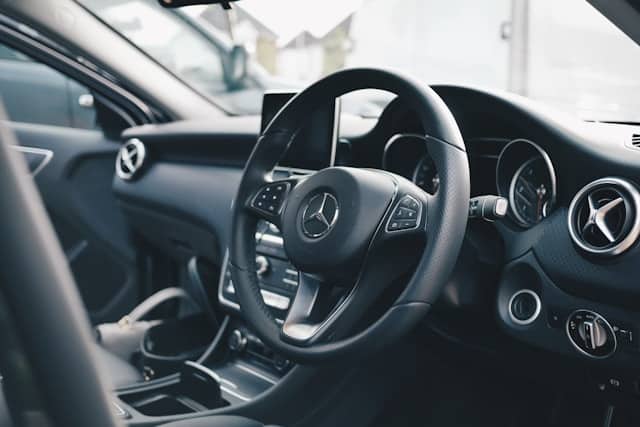How to Reduce Turbo Lag in a Volkswagen Golf R for Quicker Acceleration?

Picture this – You’re behind the wheel of your beloved Volkswagen Golf R, ready to taste the thrill of the open road. As you depress the throttle, you anticipate the powerful surge of the turbo-charged engine taking over. But instead, there’s a noticeable delay, a moment of lacklustre response before the power kicks in. This, dear readers, is what we call ‘turbo lag’. It can affect the overall performance and driving experience of your Golf R. But fear not, as we delve into the intricacies of turbo lag and how you can reduce it for a more responsive and quicker acceleration.
Understanding Turbo Lag
Before we dive into solutions, it’s crucial to understand what turbo lag really is. Turbo lag is the delay between the moment you step on the throttle and the time it takes for the turbo to spool up and deliver the full boost to the engine. This lag is a common characteristic of turbocharged engines, such as the one found in your Volkswagen Golf R.
Cela peut vous intéresser : What’s the Best Way to Install a Dog Barrier in a Subaru Outback for Pet Safety?
Turbocharged engines are a marvel of modern automotive technology. They take exhaust gases and use them to spin a turbine, which in turn drives a compressor that forces more air into the engine. This increases the engine’s power output, transforming your Volkswagen Golf R into a performance beast. However, the downside is that it takes a bit of time for the turbo to kick in, leading to a period of slower response or ‘lag’.
Identifying Turbo Lag in Your Volkswagen Golf R
Recognition is the first step towards resolution, and turbo lag is no exception. If you’re experiencing turbo lag in your Golf R, there are a few symptoms you’ll likely notice during your drives.
Avez-vous vu cela : Can the Addition of Rear Diffuser Fins Improve the Aerodynamics of a Lamborghini Gallardo?
Firstly, you may experience a noticeable delay in acceleration after pressing the throttle. This is the most common symptom of turbo lag and is typically followed by a sudden surge of power once the turbo kicks in.
Secondly, you may hear a high-pitched whining noise coming from your engine when you accelerate. This is the sound of your turbo trying to spool up.
Lastly, your car’s fuel efficiency may decrease. Since the engine isn’t getting the immediate boost it needs from the turbo, it has to work harder, burning more fuel in the process.
Tips to Reduce Turbo Lag
Turbo lag can be a bit of a downer, especially when you’re seeking an exhilarating drive. But, there are ways to reduce it. Here are some methods you can try to minimize the lag and improve your Volkswagen’s acceleration.
Fine-tuning the Engine
One of the most effective ways to reduce turbo lag is by fine-tuning your engine. This can be done through ECU remapping, which adjusts the engine’s fuel and air input parameters to optimize performance. This, in turn, can provide a quicker throttle response and reduced turbo lag.
Additionally, consider upgrading your car’s intake and exhaust systems. A high-flow intake and exhaust system can improve airflow through the engine, helping the turbo spool up faster.
Using a Twin-Scroll or Variable Geometry Turbo
Another solution is upgrading to a twin-scroll or variable geometry turbo. Twin-scroll turbos use two exhaust entries and two nozzles to keep the turbine spooling continuously, reducing lag. On the other hand, variable geometry turbos can change the airflow depending on the engine speed, thus optimizing the turbo’s responsiveness at low RPMs.
These solutions, though a bit pricey, can significantly reduce turbo lag and improve overall drive performance.
Engaging in Online Discussions and Forums
When dealing with technical car troubles like turbo lag, it helps to tap into the collective wisdom of others who have faced the same issue. Online car forums are a goldmine of information and practical advice.
Look for threads or posts discussing turbo lag issues in Volkswagen Golf R models. Engage in these discussions, ask for advice, and share your own experiences. Forums such as the Volkswagen Golf R Forum or the GTI Forum have extensive discussions on turbo lag and how to reduce it.
Remember, it’s not merely about reading posts; participating in these threads will enrich your understanding and provide various perspectives on how to tackle turbo lag in your car.
Regular Maintenance is Key
Last but not least, regular and proper maintenance of your Volkswagen Golf R is essential in reducing turbo lag. This includes timely engine oil changes, as clean, high-quality oil is crucial for the turbo’s performance.
Fuel quality also plays a substantial role in turbo lag. Using premium, high-octane fuel can help keep your engine and turbo running smoothly, thus reducing lag.
Regular check-ups can also help identify any potential problems early on, before they escalate and cause noticeable turbo lag.
In the end, while turbo lag is a common facet of turbocharged engines like the Volkswagen Golf R, it doesn’t have to take away from your driving pleasure. By understanding the issue, recognizing the symptoms, and implementing the tips we’ve discussed, you can reduce this lag and enjoy the full power and performance that your Golf R has to offer.
Using Technology to Counteract Turbo Lag
The world of technology has come up with ingenious gadgets to combat turbo lag. One such device that’s been gaining traction among car enthusiasts is the Pedal Commander. This device, essentially a throttle response controller, can be plugged into your Volkswagen Golf R and programmed to your specific driving style and needs.
The Pedal Commander works by eliminating the delay in your throttle response, effectively reducing turbo lag. It does this by amplifying the signal from the throttle pedal to the ECU, causing the turbo to spool faster. This results in immediate acceleration response, transforming your driving experience.
While the Pedal Commander is a plug-and-play device, for optimal results, it’s recommended to fine-tune it based on your personal preferences and driving style. Many users have shared their experiences in online forums, where threads discuss the best settings for various driving conditions.
Another technology that’s been making waves is the ASPRO GTI, a device designed specifically to mitigate throttle lag in Volkswagen Golf GTI models. These devices, though relatively new on the market, have been receiving positive feedback from users who have noticed a significant reduction in turbo lag after installation.
Conclusion
Understanding and reducing turbo lag in your Volkswagen Golf R can greatly enhance your driving experience. By learning about the causes of turbo lag and recognizing the symptoms, you can implement a range of techniques and gadgets to minimize this issue in your car.
Fine-tuning your engine, upgrading to a twin-scroll or variable geometry turbo, engaging in online discussions, ensuring regular maintenance, and leveraging technology like the Pedal Commander and ASPRO GTI are all viable methods to counteract turbo lag.
Though some of these solutions involve a financial investment, they are worthwhile, considering the improved driving performance and fuel efficiency you’ll get in return.
Remember, each car is unique, and what works for one might not work for another. So, don’t get disheartened if the first solution you try doesn’t provide the desired results. Keep experimenting, keep learning, and most importantly, keep driving. After all, it’s the journey that matters, not the destination.
At the end of the day, your Volkswagen Golf R is more than just a car; it’s an extension of your personality, a companion on the road of life. And, like any good companion, it deserves your time, attention, and care. So, here’s to fewer minutes spent worrying about turbo lag and more minutes enjoying the thrill of the open road! Drive safe and happy motoring!
